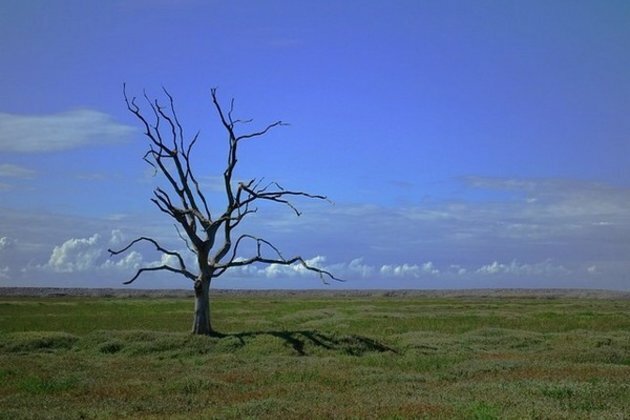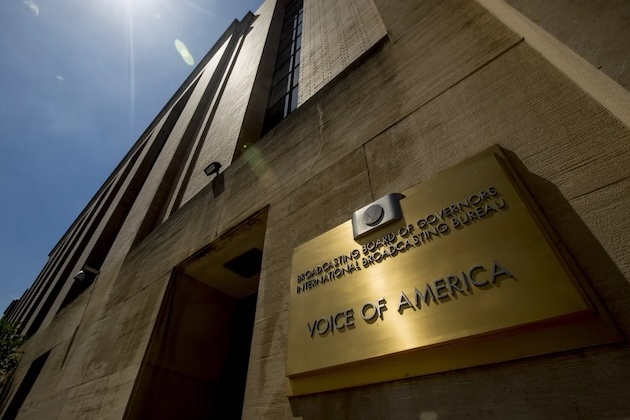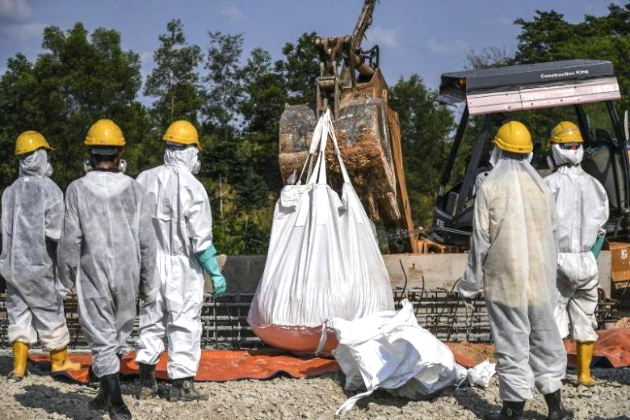Climate 'spiral' threatens land carbon stores: Study
ANI
24 Feb 2023, 06:57 GMT+10

London [UK], February 24 (ANI): A landmark study has found, the world's forests are losing their ability to absorb carbon due to increasingly 'unstable' conditions caused by humans.
Dramatic changes to forests, and other habitats that store carbon in plants and soils, are becoming more likely in some regions across Earth, with less carbon consistently absorbed by the 'land carbon sink' provided by trees, soil and plants, according to scientists writing in Nature.
The short-term impacts of rising temperatures, deforestation and farming on many vulnerable landscapes mean carbon stores on land are less likely to recover in the longer term, the scientists say. This reduces the overall storage capacity of the land to absorb carbon and undermines global efforts to curb or lower levels of greenhouse gases in the atmosphere.
Dr Patrick McGuire, a climate scientist working jointly in the Department of Meteorology and the National Centre for Atmospheric Science branch, both at the University of Reading, UK, was a co-author of the new study, which was led by colleagues at CREAF, Barcelona, and Antwerp University.
Dr McGuire said: "We found that large regions of the world are vulnerable to sudden and dramatic changes to their landscape because the ability of their ecosystems to absorb carbon starts to destabilise.
"For example, forest fires in California are more likely because of extremely dry and hot conditions caused by a hotter atmosphere. More fires mean the forest turns to scrubland, sometimes permanently. This reduces the land's overall ability to suck carbon out of the atmosphere as it did before.
"This creates a vicious cycle as areas such as these become more vulnerable to the effects of climate change in the future."Unstable carbon storageResearchers found that from 1981-2018, ecosystems worldwide moved through different phases, ranging from high productivity, when plants were able to take in more carbon, to low productivity, when plants were less able to absorb carbon.
The scale of these fluctuations creates a greater risk of destabilisation, increasing the risk of abrupt landscape changes as ecosystems cannot acclimate to climate change, deforestation, and changes to biodiversity, among other factors.
The study, published today (Wednesday, 22 February 2023) in Nature, found the regions most at risk typically have less forest cover and more cropland, are warmer and have experienced greater rises in temperature, which could be related to an increase in extreme weather events, such as heatwaves and cold snaps. The areas identified as most at risk include the Mediterranean Basin, Southeast Asia and the west coasts of North and Central America.
The researchers said these vulnerable areas had developed a 'memory' -- described as a 'temporal autocorrelation' -- meaning that years, where carbon uptake is lower, are more likely to be followed by years where carbon uptake diminishes further. Researchers say that as less carbon is absorbed in areas where forestland dominates, the likelihood of scrubland becoming the permanent landscape increases and forests could be lost forever.
Global variationWhile several regions are at risk of abrupt changes in their landscapes, there are parts of the world where carbon absorption levels are consistent and ecosystem collapse is less likely as a result of carbon fluctuations. This includes the tropical forests of the Amazon, and parts of central and northern Europe, where carbon absorption capacity has increased. However, the researchers warn that regions such as the Amazon face other climate threats, such as future shifts in regular patterns of rainfall.
The scientists say these global variations could make it harder to predict the global impact of schemes to absorb carbon, such as planting trees, in helping the world reach carbon net zero.
Dr McGuire said: "Ecosystems on land currently absorb almost one-third of the carbon emissions created by humans. If they start to absorb less carbon, the earth's natural ability to curb climate change diminishes. This means we may need to cut human-made carbon emissions even faster than we had previously thought." (ANI) Share
Share
 Tweet
Tweet
 Share
Share
 Flip
Flip
 Email
Email
Watch latest videos
Subscribe and Follow
Get a daily dose of Irish Sun news through our daily email, its complimentary and keeps you fully up to date with world and business news as well.
News RELEASES
Publish news of your business, community or sports group, personnel appointments, major event and more by submitting a news release to Irish Sun.
More InformationInternational
SectionUnited Nations building in Gaza destroyed, 1 dead, 5 injured
As Israeli tanks rolled into Gaza on Wednesday heralding a new ground invasion, a UN building was destroyed in a bombing, killing one...
Massive job cuts at Johns Hopkins as US administration pulls funding
WASHINGTON, D.C.: Johns Hopkins University announced this week that it will cut over 2,000 jobs in the U.S. and other countries. This...
US to revoke more student visas after Columbia arrest
LA MALBAIE, Canada: The United States will likely revoke visas of more students in the coming days, U.S. Secretary of State Marco Rubio...
US cuts VOA funding, puts 1,300 staff on leave
WASHINGTON, D.C.: The U.S. government has placed more than 1,300 Voice of America (VOA) employees on leave and slashed funding for...
Boeing under fire as US officials demand stricter oversight
WASHINGTON, D.C./SEATTLE: Boeing is facing mounting scrutiny after a series of safety lapses and manufacturing issues, with U.S. Transportation...
Bird flu vaccines could curb outbreaks, but export fears stall plans
OMAHA, Nebraska: Vaccines could help stop bird flu and prevent the mass killing of chickens, which has driven egg prices up to nearly...
Europe
SectionUBS CEO Ermotti to earn $17 million in 2024, report says
FRANKFURT, Germany: UBS CEO Sergio Ermotti will receive a pay package of just over 15 million Swiss francs (US$17 million) for 2024,...
Dublin thrives in colorful St. Patrick’s Day celebrations
DUBLIN, Ireland: Dublin came alive with energy and color as thousands lined the streets to celebrate St. Patrick's Day, soaking in...
Ireland Border counties spend 1.6 million euros to clean diesel waste
DUBLIN, Ireland: Authorities in two border counties have spent over 1.6 million euros in the past five years cleaning up toxic waste...
Ireland’s PM: EU finally acknowledging regulatory burden
DUBLIN, Ireland: The need to reduce regulatory burdens in the European Union is finally being acknowledged, according to Ireland's...
Lawmakers debate military expansion amid European security fears
BERLIN, Germany: German Lawmakers are debating whether to loosen the country's strict borrowing rules to fund military expansion. ...
Spotify paid a record $10 billion in music royalties in 2024
STOCKHOLM, Sweden: Spotify set a new milestone in 2024, paying out US$10 billion in royalties—the highest annual payout to the music...













